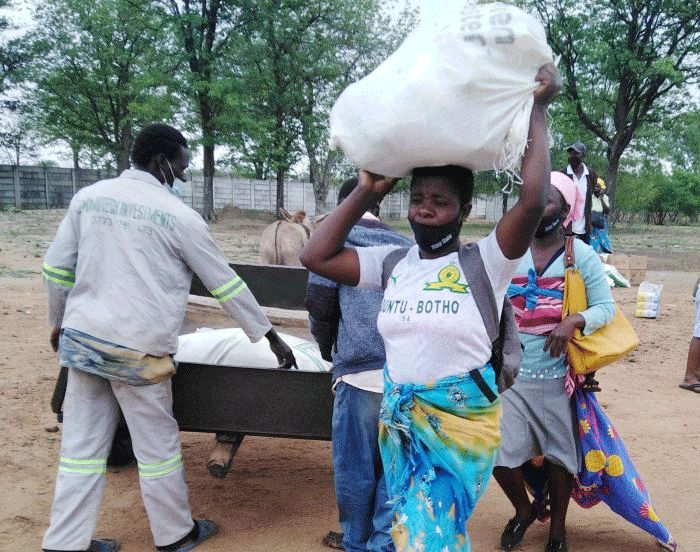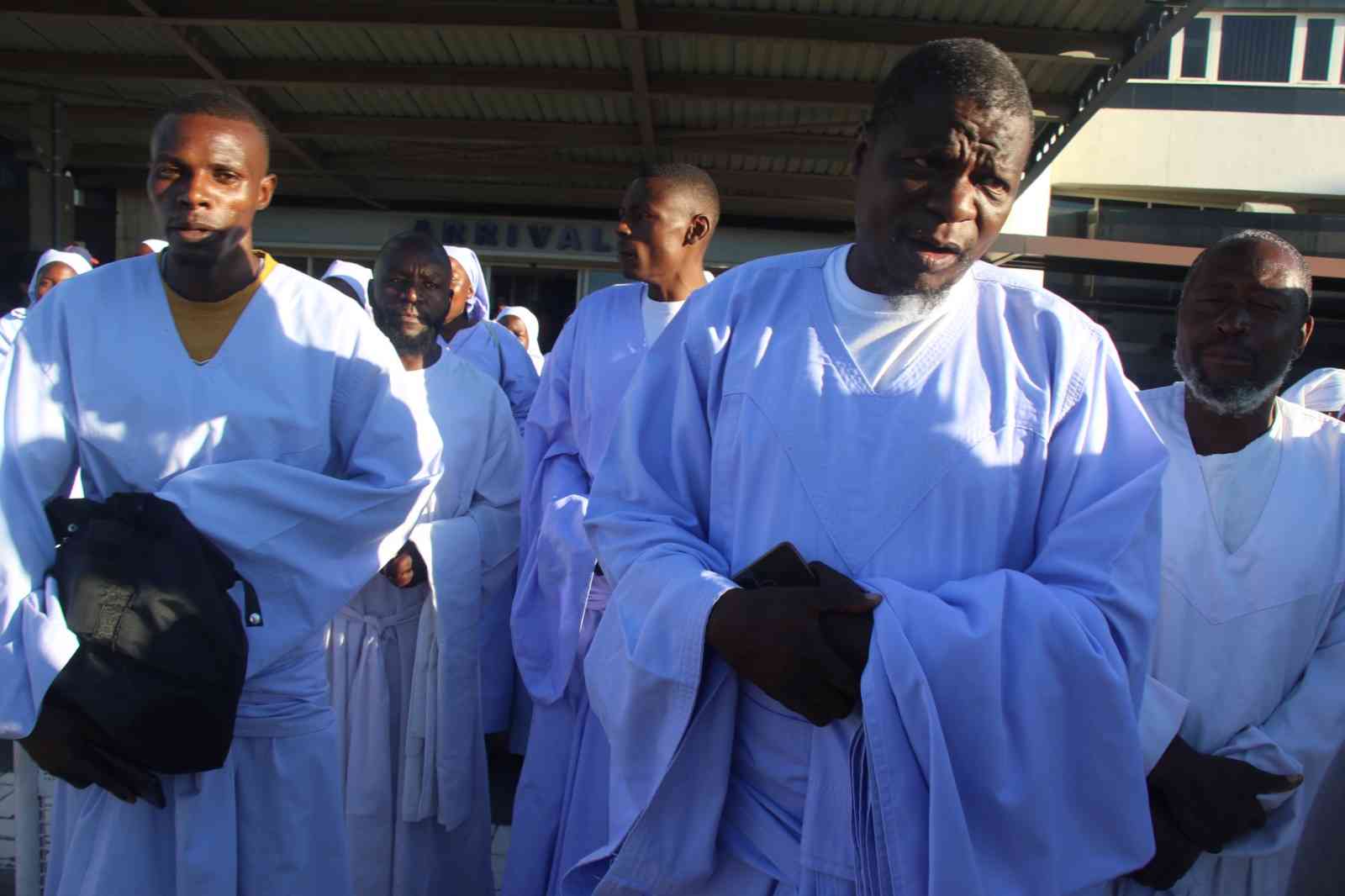
social commentary:with Moses Mugugunyeki
After enduring a seven-year marriage of abuse at the hands of her ex-husband, Tendai Ndlovu* left her rural home in Mwenezi for Masvingo town with the hope of finding a job so that she could look after her family.
It turned out to be a nightmare getting a decent job in the town, prompting Ndlovu, a mother of two, to abandon the search and join the sex work trade.
Before she left for the city, her ex-husband had lost employment at a Bulawayo-based meat processing company and had joined the family at their rural home in Mwenezi.
“As a result of stress brought by his financial insecurity, he became brutal and I was on the receiving end,” Ndlovu said.
“He would beat me every moment he recalled his city lifestyle. He would speak ill of government’s failure to protect workers at companies and vent his anger on me.”
Ndlovu is among many women and girls in Zimbabwe who cannot report or leave an abusive relationship due to lack of economic independence.
Their plight is worsened by the country’s collapsing economy resulting in them failing to access economic opportunities to break free of the cycle of dependence.
- Chamisa under fire over US$120K donation
- Mavhunga puts DeMbare into Chibuku quarterfinals
- Pension funds bet on Cabora Bassa oilfields
- Councils defy govt fire tender directive
Keep Reading
Zimbabwe’s annual inflation rate dropped to 471.25% in October from 659.40% in September, according to latest data from the Zimbabwe National Statistics Agency (Zimstats).
According to a recent World Bank Poverty and Shared Prosperity Report, four out of five people below the global poverty line live in rural areas of which the majority are women.
The report adds that of the global poor aged 15 and older, about 70% have no schooling or basic education.
“My father was out of employment and failed to send me to secondary school,” Ndlovu said.
“Poverty was the order of the day at home compelling me to elope to this man who was working in the city with the hope of getting a better life.
“At first it was okay, but things changed after he was retrenched. I was beaten and abused until the day I walked out of the marriage. He did not make a follow-up and I heard he is married to another woman.”
According to UNFPA, in Zimbabwe, about one in three women aged 15 to 49 have experienced physical violence and about one in four women have experienced sexual violence since the age of 15.
Today, Ndlovu is one of the most prominent sex workers in Masvingo’s Mucheke suburb.
Her life has not been a bed of roses as she is exposed to many trials and tribulations that make her chosen career path grim.
Ndlovu is among hordes of sex workers who are most vulnerable to gender-based violence and HIV infection.
“When I got divorced I had nowhere to start, so I came to Masvingo to look for a job, but it wasn’t easy and I thought of making money this way,” she said. Several factors heighten sex workers’ vulnerability to gender-based violence as well as HIV and Aids.
They face cultural, social and legal hurdles in life. They also experience violence on the streets, on the job or in their personal lives, which increases their vulnerability to HIV and GBV.
A Zimbabwe Sex Worker Formative Research Report shows that many sex workers report being beaten, threatened with weapons, raped and forced into sex.
“Some men pick you from the beerhall and take you to their place or yours and when you get there, they refuse to pay and then at times that’s when beatings happen and you go and report to the police and they [police] say they are not part of sex workers’ issues,” said one woman based in Beitbridge who participated in the research.
Ndlovu chipped in saying she experienced abuse at the hands her clients as well.
“If I had a job to do, I would quit sex work. I am only doing this to make ends meet. Things are not well in the country,” she said.
Women’s Action Group programmes officer Fiona Tinarwo said the economic performance of a country directly impacts on people’s lives, including gender-based violence.
“From our experiences working with communities, intimate partner violence and economic abuse are mainly driven by poverty where couples start to question each other or expose each other’s failures to provide for the family,” Tinarwo said.
“Job insecurities also mean women spend more time in risky and unsafe working conditions which at times expose them to violence in public spaces such as market places where they end up being harassed or sexual favours are demanded and they end up being abused.
“The issue of power dynamics in the home in cases where the female member is the sole bread winner also results in GBV due to issues of masculinity where the man feels threatened due to failure to provide for the family. All these issues interplay and the cycles of GBV continue to exist due to poverty.”
She said there was need to create platforms that allow women to access economic opportunities so that they break free of the cycle of dependence.
“We are trying to mainstream issues of women economic empowerment in our gender-based violence programmes so that we reduce poverty-related gender-based violence,” Tinarwo said.
“If women can provide and contribute to household income, there is less emotional and economic abuse at household level.
“We are also working with other institutions that provide women with opportunities to start businesses
“We also train women in transformative leadership so that they are able to be leaders in their own businesses and ensure those businesses bring change in their lives. At times women are busy and poor, but we are saying let’s think bigger and better and bring transformation in their lives.”
The Zimbabwe Poverty Update (2017-19), a joint report compiled by Zimstats and the World Bank, shows more people, the majority being women, have been thrown into the deep throes of poverty.
The number of extremely poor people rose from 4,5 million in 2017 to six million during April-May 2019, but the number of poor people measured by the lower-bound poverty line rose from 8,0 million to 8,9 million during the same period.
Dorothy Chirwa Tumbo, a humanitarian activist and researcher, acknowledges that the deteriorating economic situation was contributing to a surge in gender-based violence cases.
“Poor economies like ours and poverty make people more likely to experience acute stress and resort to risky coping strategies that increase the risk of gender-based violence,” she said.
Chirwa Tumbo, who was part of the team that compiled the Zimbabwe Sex Worker Formative Research Report, said sex work was highly stigmatised.
“It’s poverty that pushes them onto the streets or to the dark corners in the avenues. Most sex workers are often subjected to blame, labelling and discriminatory treatment,” she said.
Zimbabwe, just like many countries in the region, has adopted and ratified the Sadc Protocol on Gender and Development, which mandates countries to ensure that perpetrators of gender-based violence are tried by a court of competent jurisdiction.
The protocol in Articles 16, 17 and 19 spells out the inclusion of economic power as key in enhancing the voice of women and girls in the wake of gender-based violence.
Sustainable Development Goal Number 5 in target 5.2 encourages countries to eliminate all forms of violence against all women and girls in the public and private spheres, including trafficking and sexual and other types of exploitation.
In pursuit of promoting gender equality, the country established the Zimbabwe Gender Commission, whose specific mandate, among others, includes recommendation of affirmative action programmes to achieve gender equality and monitoring issues concerning gender equality and to ensure gender equality as provided for in the Constitution.
Matabeleland South province-based women’s rights activist Lorraine Ndlovu Sibanda said there was need to come up with a number of women empowerment programmes.
“We have started engaging women in our programmes as we try to empower them economically through a number of programmes,” Ndlovu Sibanda.
“We also incorporate men in the programmes because we believe men also need to be conscientised on such issues.”
For Ndlovu, she believes if given the opportunity, she can start her own income-generating projects.
*Not her real name l This story was first published by Gender Links as part of its Sixteen Days of Activism News series.










